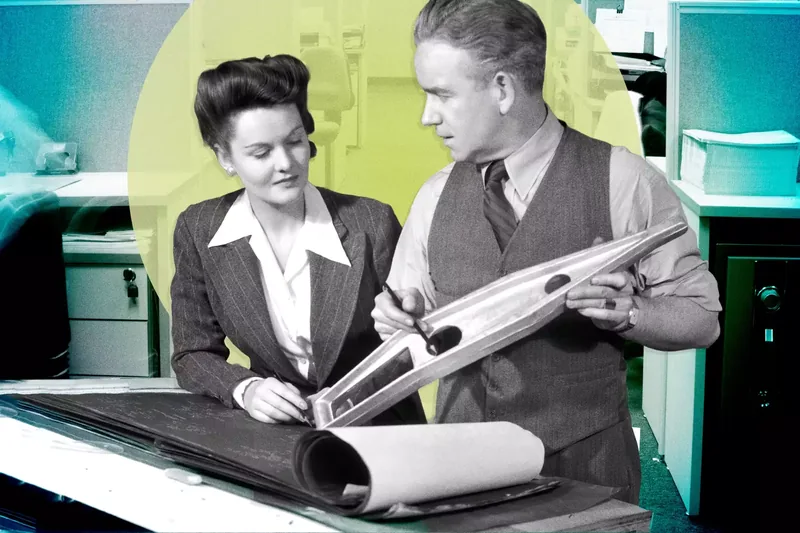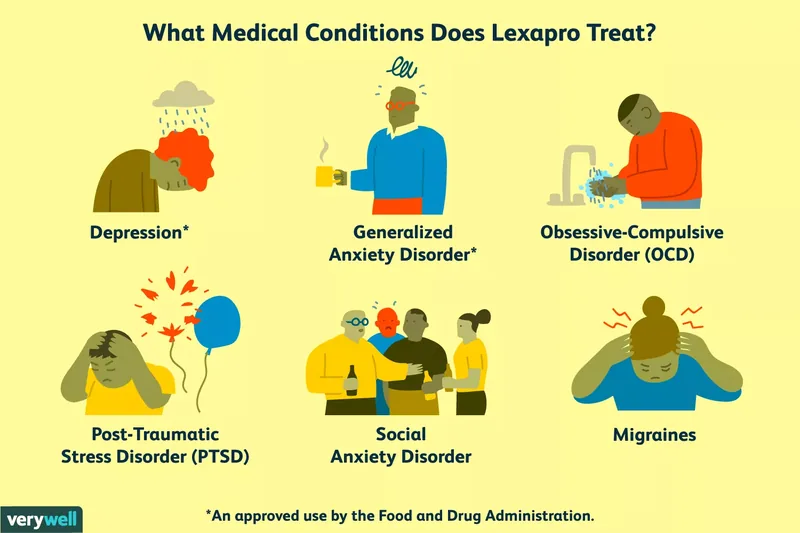Why It's Time to Retire the Advice 'Find a Job You Love': A Modern Guide to Career Fulfillment
For decades, the powerful exhortation to "love what you do" has shaped career aspirations worldwide. Fueled by iconic figures like Steve Jobs, whose famous Stanford commencement address urged graduates to "keep looking" until they found work they loved, this philosophy has permeated our understanding of success and fulfillment. However, contemporary research and shifting societal values suggest it's time to retire the advice 'find a job you love' and embrace a more nuanced approach to professional life.
While the pursuit of passion can indeed be rewarding, an overemphasis on loving every aspect of one's job can lead to burnout, exploitation, and disappointment. This article delves into the science behind career satisfaction, challenging the conventional wisdom and offering evidence-based strategies for building a truly fulfilling work life in 2025 and beyond.
The Allure and Pitfalls of Passion-Driven Work
The idea that work should be an extension of our deepest passions is compelling. It promises a life free from the drudgery often associated with employment, aligning personal interests with professional endeavors. This perspective has been heavily promoted in educational institutions and by career coaches, influencing countless individuals to chase their "calling."
However, recent sociological and psychological studies indicate that this singular focus on passion as the ultimate career driver is often misguided. While some individuals undoubtedly thrive by turning their hobbies into professions, many others encounter significant challenges. The belief that one must love their job to do great work can create undue pressure and dissatisfaction, particularly when reality inevitably falls short of idealized expectations.
The Dark Side of Loving Your Job
For many, a deep love for their work can paradoxically lead to detrimental outcomes. The emotional investment in a passion-driven career often blurs boundaries, leading to exploitation and personal sacrifice. Consider the findings from researchers Bunderson and Thompson, who studied zookeepers—a group renowned for their profound dedication to their work.
Evidence-Based Mechanisms of Exploitation:
- Overwork and Burnout: Zookeepers, despite finding immense meaning in their roles, frequently reported working excessive hours and sacrificing personal time. Their devotion to animal welfare often superseded their own well-being, leading to chronic exhaustion (Bunderson & Thompson, 2009).
- Low Compensation: Employers may subtly leverage an employee's passion, offering fewer incentives or lower pay under the assumption that the intrinsic reward of the work itself is sufficient. A meta-analysis of various industries confirms this trend, noting that those who appear to love their work are often less likely to receive extrinsic rewards (Psychology Today, 2024).
- Personal Sacrifices: Individuals deeply committed to their work often neglect other vital life areas, including friendships, family relationships, and personal responsibilities. This imbalance can lead to a diminished quality of life outside of work, ultimately impacting overall happiness.
This phenomenon isn't limited to specific vocations; it's a pervasive issue across many industries where passion is seen as a primary motivator. It underscores why we need to retire the advice 'find a job you love' if it means sacrificing personal health and financial stability.
Understanding Motivation Purity Bias
Another significant downside of the "love your job" culture is the emergence of a "motivation purity bias." This bias leads individuals, including hiring managers, to view motivations other than pure passion as less legitimate or even undesirable. Rationally, we understand that financial stability is a primary reason most people work, yet culturally, this is often downplayed.
Professors Derfler-Rozin and Pitesa's research highlights this bias, showing that job candidates who inquired about salary during interviews were approximately 20% less likely to be recommended for hire. Recruiters, influenced by the purity bias, incorrectly assumed a lack of passion for the role (Harvard Business Review, 2023). This not only disadvantages qualified candidates but also ignores the complex reality of human motivation.
Key Insight: People are often driven by a multitude of factors – financial security, intellectual challenge, social connection, and personal growth – not just an all-consuming love for the work itself. Dismissing these diverse motivations perpetuates an unfair and unrealistic standard in the workplace, making it crucial to retire the advice 'find a job you love' as the sole metric for career worth.
How Our Passions and Priorities Evolve
One of the most compelling arguments for rethinking career advice is the dynamic nature of human interests and priorities. What brings us joy and excitement in our twenties may not hold the same appeal in our forties or fifties. Life stages, personal responsibilities, and even our psychological needs shift over time.
Consider an individual who dedicated their early career to organizing large-scale music festivals, thriving on the high-energy environment and unique experiences. As they matured, perhaps starting a family or prioritizing calmer evenings, the relentless pace and late nights became less appealing. The once "dream job" might now feel draining, highlighting that our definition of "love" in a career context is not static.
Latest Research on Shifting Happiness:
- Age and Experience: Studies show that younger individuals often derive significant happiness from extraordinary, novel experiences. However, as we age, the same level of happiness can be found in more ordinary, stable experiences (Stanford researchers, 2022). The thrill of constant excitement often gives way to an appreciation for consistency and peace.
- Passion Fatigue: Turning a passion into a daily job can, ironically, diminish the very passion itself. When a once-enjoyable hobby becomes a source of income and daily obligation, the pressure to perform and the routine demands can lead to emotional exhaustion. This exhaustion, as my own research indicates, limits feelings of empowerment and connection to the work (Routinova Institute, 2024).
Many professionals, from teachers to nurses, enter their fields with immense passion, only to find themselves feeling disconnected years later due to systemic pressures, resource constraints, and the sheer emotional toll of the work. This evolution underscores the need to retire the advice 'find a job you love' as an immutable, lifelong dictate.
Hedonic vs. Eudaimonic Happiness in Careers
To truly understand career fulfillment, it's essential to differentiate between two forms of happiness: hedonic and eudaimonic. This distinction is vital for a holistic view of well-being in the workplace.
- Hedonic Happiness: This refers to immediate pleasure, comfort, enjoyment, and low stress—the kind of happiness most people envision. It's the feeling of relaxing on a beach or enjoying a favorite hobby.
- Eudaimonic Happiness: This deeper, more profound sense of happiness stems from fulfillment, growth, purpose, and doing things that matter. It often involves effort, challenge, and even discomfort, but contributes to a meaningful life.
Research by Bryson and MacKerron, analyzing data from 20,000 individuals, found that people's happiness levels sharply dropped when they started working each day. This dip was more significant than during commutes, chores, or managing finances (University of Essex, 2012). This suggests that work rarely provides constant hedonic pleasure.
However, despite this immediate dip, unemployment is consistently one of the strongest predictors of low overall well-being. This paradox highlights work's crucial role in eudaimonic happiness. Work provides structure, purpose, opportunities for personal and professional growth, and the financial stability necessary for a secure life. These contributions, while not always "happy" in the moment, are fundamental to long-term fulfillment.
Meta-analysis Insights: A comprehensive review of well-being literature indicates that a balanced life, incorporating both hedonic enjoyment and eudaimonic purpose, is key to overall satisfaction. Work contributes significantly to the latter, even if it doesn't always feel like pure joy. It's about finding meaning and growth, which can exist independently of an intense, constant "love" for the job.
Research-Backed Strategies for Career Fulfillment
Instead of solely chasing passion, a more sustainable path to career satisfaction involves strategic choices and intentional design. Here are evidence-based approaches:
- Job Crafting: This involves proactively shaping your job to better fit your strengths, passions, and values. It can mean redesigning tasks, adjusting relationships with colleagues, or reinterpreting the purpose of your work. For instance, a data analyst might volunteer to mentor new hires, adding a teaching element they enjoy.
- Portfolio Careers: Embrace the idea of having multiple streams of work or projects. This allows individuals to pursue diverse interests, gain varied skills, and reduce reliance on a single, all-encompassing "dream job." A graphic designer might also teach art classes or run an online store for custom illustrations.
- Prioritize Work-Life Integration: Rather than a strict work-life balance, aim for integration where work and personal life complement each other. This means setting clear boundaries, protecting personal time, and ensuring that career demands don't consistently overshadow other life priorities.
- Identify Core Values Beyond Passion: Reflect on what truly matters to you in a career. Is it impact, stability, learning, autonomy, collaboration, or creativity? A fulfilling career often aligns with several core values, not just a singular passion. For example, a stable job with good benefits might enable you to pursue a passion project in your free time.
- Focus on Competence and Growth: Deriving satisfaction from mastering skills and continuous learning can be more reliable than relying on fleeting passion. The sense of accomplishment and professional development provides a strong source of eudaimonic happiness.
Expert Recommendations for a Balanced Career
To navigate the complexities of modern work life, experts recommend a pragmatic yet purposeful approach. It's time to retire the advice 'find a job you love' and replace it with a more sustainable framework.
- Embrace Dignity in All Work: Recognize that all forms of honest work, whether driven by passion, financial necessity, or a desire for contribution, hold inherent dignity. This perspective challenges the "motivation purity bias" and fosters a more inclusive understanding of career paths.
- Seek "Good Enough" Work: Not every job needs to be a grand passion project. A "good enough" job provides stability, reasonable working conditions, opportunities for growth, and allows you to fund your life and perhaps pursue passions outside of work. This reduces pressure and promotes realistic expectations (Psychology Today, 2024).
- Cultivate Multiple Sources of Meaning: Don't put all your meaning-making eggs in one career basket. Develop hobbies, volunteer, nurture relationships, and engage in community activities. This diversified approach ensures that your overall well-being isn't solely dependent on your job.
- Regularly Reassess Priorities: As life changes, so should your career strategy. Periodically evaluate what you need from your work, whether it's more flexibility, different challenges, or a shift in industry. Adaptability is key to long-term satisfaction.
In conclusion, while the sentiment behind "find a job you love" is well-intentioned, its practical application can be limiting and even harmful. By understanding the nuances of motivation, happiness, and personal evolution, we can build careers that are not only successful but genuinely fulfilling, honoring the diverse reasons why we choose to work.










